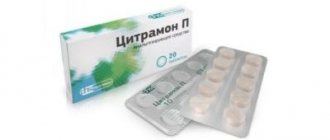Share with friends:
If you are taking aspirin to prevent heart attacks and strokes or to fight painful inflammation, then you need to know that there are possible side effects of aspirin on the body that you need to be aware of. There are also natural alternatives to aspirin that are considered safer.
We were told about the dangers of NSAIDs
, but why do so many people ignore warnings when it comes to aspirin? This may be due to the fact that aspirin helps reduce hormone-like substances in the body that promote inflammation and blood clotting. Some people who take aspirin regularly over a long period of time are not at great risk for vascular disease. And the potential side effects of aspirin on the body may outweigh the benefits of the pill.
Here are some questions you can ask yourself and use this information to answer for yourself. Am I the type of person who should take aspirin every day to prevent another heart attack or stroke? And if so, is taking aspirin regularly right for me?
Pharmacological properties
Pharmacodynamics
Acetylsalicylic acid (ASA) belongs to non-steroidal anti-inflammatory drugs (NSAIDs). It is characterized by anti-inflammatory, antipyretic and analgesic effects, which is associated with inhibition of cyclooxygenase enzymes, which play an important role in the synthesis of prostaglandins.
ASA in a dose range of 0.3–1 g is used to reduce fever in patients with ARVI and influenza and to reduce muscle and joint pain. This substance inhibits platelet aggregation by blocking the production of thromboxane A2 in platelets.
Pharmacokinetics
After oral administration, ASA is quickly and almost 100% absorbed from the gastrointestinal tract. The main pharmacologically active metabolite into which the active substance is converted as a result of biotransformation is salicylic acid.
The maximum concentration of ASA in the blood plasma is achieved in approximately 10-20 minutes. For salicylates, this figure varies from 20 to 120 minutes. ASA and salicylic acid are almost completely bound to blood plasma proteins and are quickly distributed in the body. Salicylic acid crosses the placental barrier and is detected in breast milk.
Further metabolism of salicylic acid occurs primarily in the liver. As a result of metabolic processes, salicylphenol and salicylacyl glucuronides are formed, as well as salicyl uric, gentisin uric and gentisic acids.
Pharmacokinetic parameters regarding the elimination of the drug are dose-dependent, since its metabolism is determined by the activity of liver enzymes. The half-life also depends on the dose: when taking Aspirin in low doses it is 2-3 hours, and when taking high doses it increases to 15 hours. ASA and its metabolites are excreted mainly in the urine.
Contraindications
- Bronchial asthma provoked by taking salicylates and non-steroidal anti-inflammatory drugs;
- Erosive and ulcerative diseases of the gastrointestinal tract in the acute phase;
- Hemorrhagic diathesis;
- Simultaneous use of Aspirin with methotrexate with a weekly dose of 15 mg;
- I and III trimesters of pregnancy;
- Age up to 15 years;
- Hypersensitivity to salicylates.
Some caution is required when prescribing Aspirin tablets to patients suffering from gout, hyperuricemia, ulcerative lesions of the gastrointestinal tract or gastrointestinal bleeding (history), impaired liver and kidney function, chronic respiratory diseases, bronchial asthma, hay fever, polyposis of the nasal mucosa, and also for women in the second trimester of pregnancy.
Side effects of the drug Aspirin complex
Acetylsalicylic acid From the gastrointestinal tract: nausea, anorexia, pain in the epigastric region. In some cases, especially with frequent and long-term use of the drug, the appearance of erosive and ulcerative lesions of the digestive tract, sometimes complicated by latent or clinically significant bleeding (melena). Allergic reactions: urticaria, skin rashes, angioedema (Quincke's edema), bronchospasm and shortness of breath (especially in patients with asthma). From the hematopoietic system: very rarely - the development of thrombocytopenia, anemia (due to hidden bleeding from the gastrointestinal tract), hypoprothrombinemia. From the central nervous system and sensory organs: dizziness, ringing in the ears, headache, hearing loss. From the urinary system: renal failure, acute interstitial glomerulonephritis. In isolated cases (≤1%), toxic liver damage, especially in patients with rheumatoid arthritis, anemia, Reye's syndrome in children (with hepatogenic encephalopathy). Phenylephrine bitartrate From the central nervous system and sensory organs: headache, dry mouth, insomnia, nausea, excitability, anxiety. In isolated cases: from the central nervous system - severe headache, inappropriate behavior; from the cardiovascular system - increased blood pressure, tachycardia; from the urinary system - painful or difficult urination. Chlorphenamine maleate From the nasopharynx and organs of vision: dryness of the mucous membrane of the mouth and nose, impaired accommodation (blurred vision); from the cardiovascular system - tachycardia; from the gastrointestinal tract - constipation; from the urinary system - urinary retention, painful or difficult urination; from the central nervous system and sensory organs - impaired attention, drowsiness, dizziness. Children and elderly patients may experience lethargy or excitability, anxiety, irritability, and dizziness. If any side effects occur, the drug should be discontinued.
Instructions for use of Aspirin: method and dosage
A single dose of Aspirin is taken 3 times a day, the interval between doses is 4-8 hours. Patients with impaired liver and kidney function must either increase the interval between doses or reduce the dose.
For fever, pain, rheumatic diseases, a single dose for adults and children over 15 years of age is 0.5-1 g (daily dose - no more than 3 g).
The tablets should be taken after meals, swallowed whole and washed down with water.
The use of Aspirin should not last more than three days as an antipyretic, more than a week as an analgesic.
Overdose
A moderate overdose of Aspirin is manifested by symptoms such as clouding of consciousness, headache, dizziness, nausea, vomiting, hearing loss, and tinnitus. In most cases, they disappear when the dose of the drug is reduced.
Severe overdose of the drug is characterized by such manifestations as severe hypoglycemia, respiratory failure, hyperventilation, fever, cardiogenic shock, respiratory alkalosis, ketosis, metabolic acidosis, coma.
If Aspirin is taken in very high doses, the patient is hospitalized. It is recommended to take activated charcoal and constantly monitor the acid-base balance, as well as alkaline diuresis, which is carried out until the urine pH is in the range of 7.5–8 [forced alkaline diuresis is considered effective if, as a result of the procedure, the content of salicylate in the blood exceeds 500 mg/l (3.6 mmol/l) in adult patients and 300 mg/l (2.2 mmol/l) in children]. If necessary, lavage and hemodialysis sessions are performed. Treatment measures also include symptomatic treatment and replacement of fluid deficiency.
Symptoms of a hangover and when exactly they occur
Symptoms of a hangover begin to appear when blood alcohol levels drop significantly. This usually occurs the morning after drinking alcohol. Upon waking up, the person begins to feel unwell and complain of a headache.
The main symptoms of a hangover [Verified Source] include:
- excessive thirst;
- headache;
- aches throughout the body;
- sensitivity to light and sound;
- fatigue;
- problems with concentration;
- dizziness;
- cardiopalmus;
- nausea, vomiting or diarrhea.
If, after drinking a large amount of alcohol, a person becomes confused, their breathing slows down, or their skin turns pale or blue, this may be caused by alcohol poisoning. In such cases, you should immediately seek emergency medical help.
The hangover itself goes away completely within 24 hours. However, the duration and severity of symptoms may vary from person to person [Verified Source].
To avoid headaches and other negative symptoms, you need to take effective hangover pills, and the main one is aspirin.
special instructions
Aspirin enhances the effect of other NSAIDs and narcotic analgesics, hypoglycemic agents, indirect anticoagulants, heparin, sulfonamides, triiodothyronine; increases the toxicity of methotrexate; reduces the effect of uricosuric drugs, antihypertensive drugs and diuretics.
Ethanol and corticosteroids enhance the damaging effect of Aspirin on the gastrointestinal mucosa, increasing the likelihood of developing gastrointestinal bleeding.
Acetylsalicylic acid increases the plasma concentration of lithium, barbiturates and digoxin.
Impact on the ability to drive vehicles and complex mechanisms
According to the instructions, Aspirin does not affect the ability to drive vehicles or perform potentially dangerous types of work that require high concentration and speed of reactions.
Use during pregnancy and lactation
Some retrospective epidemiological studies have shown that the use of ASA in the first trimester of pregnancy increases the risk of developing birth defects (including cleft palate and heart defects). However, the results of other studies, which involved 32,000 mother-child pairs, suggest that taking Aspirin in therapeutic doses not exceeding 150 mg per day does not increase the incidence of congenital malformations. Since research results are controversial, the use of Aspirin in the first trimester of pregnancy is not recommended. When taken in the second trimester of pregnancy, care must be taken; the drug can be prescribed only after a thorough assessment of the balance between the benefits of treatment for the mother and the risks for the child. In the case of a long course of therapy, the daily dose of ASA should not exceed 150 mg.
In the third trimester, taking Aspirin in high doses (more than 300 mg per day) can lead to post-term pregnancy and weakening of labor, as well as premature closure of the ductus arteriosus (ductus arteriosus) in the child. Taking ASA in significant doses shortly before birth sometimes leads to the development of intracranial bleeding, especially in premature infants. In this regard, the use of Aspirin in the last trimester of pregnancy is contraindicated, with the exception of special cases due to cardiac and obstetric indications using special monitoring.
If it is necessary to use Aspirin during lactation, it is recommended to stop breastfeeding.
TOP 7 natural alternatives to aspirin
1. Anti-inflammatory nutrition
If you are taking aspirin to reduce inflammation and swelling, there are other safer and more natural ways to do so. And the best place to start is with food. First, you need to avoid eating foods that cause inflammation, swelling and pain. For example, junk food, processed and packaged foods, foods with artificial ingredients and added sugars, and too much caffeine and alcohol.
Instead, focus on eating foods that will promote health and reduce inflammation. These anti-inflammatory foods include:
- Leafy greens and other colorful vegetables
- Fruits such as blueberries and pineapple
- Healthy fats like wild salmon and coconut oil
- Bone broth
- Nuts and seeds, such as walnuts, flax and chia seeds
- Good quality meats such as free range beef and organic chicken
- Anti-inflammatory spices such as ginger, cayenne pepper and turmeric
2.Ginger
Did you know that ginger has blood clotting properties? Regular consumption of ginger may help prevent heart attack and stroke. In addition, ginger is beneficial for health and has analgesic and anti-inflammatory properties. Gingerol, the most therapeutic component in ginger, acts on receptors located on sensory nerve endings.
Because of its ability to reduce pain and inflammation, ginger is often used as a natural therapy for degenerative diseases. For example, arthritis and rheumatism, as well as cardiovascular diseases such as hypertension and atherosclerosis
.
3.Turmeric
Research shows that turmeric's benefits extend beyond anti-inflammatory drugs, anticoagulants and pain relievers. Additionally, turmeric has relatively no known side effects unless taken in extremely excessive amounts. Research also shows that curcumin, the most beneficial compound in turmeric, has antithrombotic activity. And daily consumption of turmeric can help maintain anticoagulant status.
Researchers also suggest that turmeric extracts can be used to relieve pain. A meta-analysis published in the Journal of Medical Food found that 1,000 mg of curcumin per day was effective in relieving pain in patients with arthritis
. In fact, five studies found that there was no significant difference between the effectiveness of turmeric and the pain-relieving medicine.
4.Cinnamon
Cinnamon has anti-inflammatory and cardiovascular properties. Research shows that the main health benefit of cinnamon is its ability to reduce several risk factors for cardiovascular disease, including high blood pressure and high cholesterol. Cinnamon acts as a natural blood coagulant and increases blood circulation. It may also promote tissue repair. This promotes the regeneration of heart cells. So it can fight heart attacks and strokes.
5.MSM (methylsulfonylmethane)
MSM is an adaptogenic herb that helps the body cope with stress and heal from injury, surgery, exercise, and stressful events. MSM supplements
often used to relieve chronic pain, muscle spasms, high blood pressure and eye inflammation.
MSM fights inflammation by adding sulfur to the body, which helps repair the tough, fibrous tissue cells found in muscles. MSM also helps restore flexibility and permeability of cell walls inside muscles, helping them recover more easily.
Bomeline
This enzyme, found in pineapples, is often used to treat inflammation associated with arthritis. Research shows that it can be used to relieve post-surgical pain and swelling, joint pain and sinus inflammation.
Research published in biomedical reports shows that the two main health benefits of bromelain are its anti-inflammatory and antithrombotic effects. It effectively increases blood circulation and strengthens the immune system.
7.Magnesium
Did you know that magnesium deficiency can lead to health problems such as hypertension and cardiovascular disease. As well as kidney and liver damage, muscle cramps, a suppressed immune system and migraines?
Taking magnesium supplements can maintain blood pressure levels and prevent hypertension. According to the Journal of Clinical Hypertension, diseases such as coronary heart disease, ischemic stroke and arrhythmia can be prevented or treated with magnesium supplementation.
Related: Antibiotic Drug Resistance – How Likely to Get It?
Risk factors and precautions
If you regularly take aspirin, it is important to consult your doctor about possible interactions. Especially if you are currently using any other medications (both over-the-counter and prescribed), vitamins, and herbal supplements.
There are some medications that can affect how aspirin works in the body. These include: arthritis medications; medications used to treat chronic symptoms of gout; blood pressure medications; blood thinners and medications used to treat blood clots; steroid medications; and medications to treat seizures.
Some people are more susceptible to complications from long-term use of aspirin and should not take this drug, especially daily or in large doses. This includes people with the following conditions:
- Heart failure
- Liver or kidney diseases
- Suffocation
- Stomach ulcer
- Bleeding or bleeding disorders
- Uncontrolled blood pressure
- Diabetes
People who are allergic to aspirin or other NSAIDs, or who have asthma with nasal polyps and rhinitis should never take aspirin. If you are allergic to aspirin, you may develop hives
, swelling, wheezing and even shock.
Anyone who drinks alcoholic beverages should not take aspirin. It should also not be used by pregnant or breastfeeding women unless recommended by a doctor.
Side effects of aspirin on the body - key points
- Aspirin is an anti-inflammatory drug used to reduce pain and inflammation, relieve pain and reduce fever.
- Although daily use of aspirin is recommended for adult men and women in preventing heart attack and stroke, it is important to understand that taking aspirin is not without risks. The most dangerous side effects of aspirin on the body include kidney damage, liver damage, ulcers, hearing loss, hemorrhagic stroke and Reye's syndrome.
- Long-term use of aspirin may be especially dangerous for people with the following conditions: heart failure, liver or kidney disease, asthma, stomach ulcers, bleeding disorders, uncontrolled blood pressure, and diabetes.
Drug interactions
Acetylsalicylic acid enhances the toxic properties of methotrexate, as well as the undesirable effects of triiodothyronine, narcotic analgesics, sulfonamides (including co-trimoxazole), other NSAIDs, thrombolytics - platelet aggregation inhibitors, oral hypoglycemic drugs, indirect anticoagulants, heparin. At the same time, it weakens the effect of diuretics (furosemide, spironolactone), antihypertensive drugs and uricosuric drugs (probenecid, benzbromarone).
When Aspirin is used together with ethanol-containing drugs, alcohol and glucocorticosteroids, the damaging effect of ASA on the gastrointestinal mucosa increases, which increases the risk of gastrointestinal bleeding.
Acetylsalicylic acid increases the concentration of lithium drugs, barbiturates and digoxin in the body when used simultaneously. Antacids containing aluminum and/or magnesium hydroxide slow down and reduce the absorption of ASA.
Can I take aspirin with milk?
To date, there is no clear evidence of the benefits of aspirin with milk against cancer. But the fact that milk does not protect the mucous membranes of the stomach from damage and internal bleeding is already obvious.
In addition, it is worth remembering that milk is often used as an antidote for poisoning. It suppresses the effect of substances that enter the body. This also applies to aspirin: when acid interacts with milk (alkali), the medicinal properties of the drug are neutralized. The active substance simply coagulates and precipitates.
Therefore, when combining aspirin with milk, the therapeutic effect does not occur or becomes unexpressed.
Reviews of Aspirin
According to reviews, Aspirin effectively relieves pain and inflammation, reduces fever and helps with VSD (vegetative-vascular dystonia), and is also successfully used to prevent vascular complications. Some patients use the drug as one of the components of masks to cleanse the face and strengthen hair (for example, in combination with honey). This is explained by the fact that ASA is good at eliminating swelling and inflammation, and also helps exfoliate dead skin cells.










